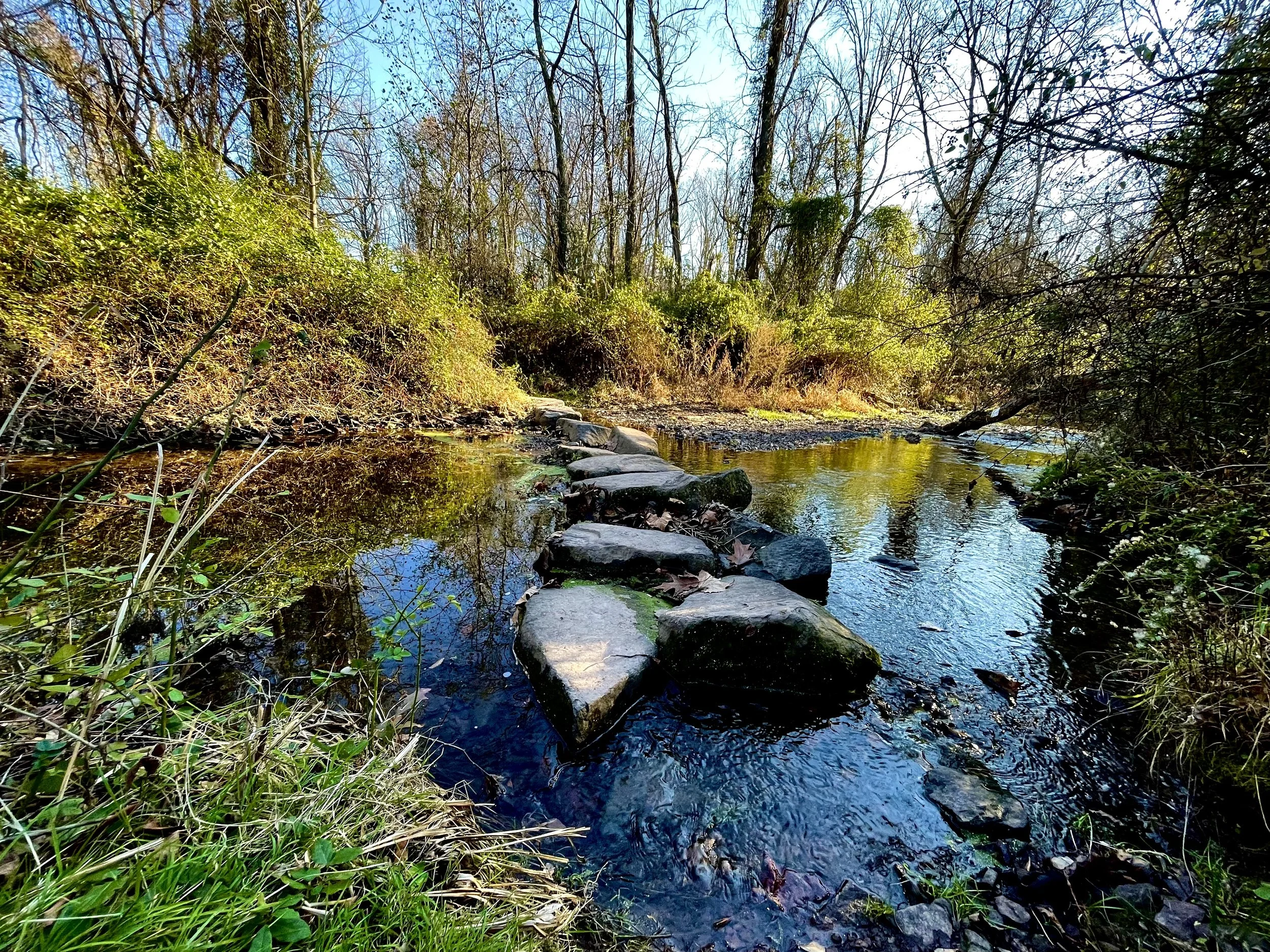Mountain Lakes Preserve features a wonderful diversity of native plants and summer wildflowers. This collection of photos offers a taste of the beauty found in MLP this time of year. Please visit soon, to see these and other species in their full splendor!
Jewelweed’s orange flowers speckle this wetland meadow, near one of the Preserve’s several stream crossings. Jewelweed is a common native plant, valued for its ability to attract hummingbirds, butterflies, and other pollinators, as well as its medicinal uses as a natural fungicide.
Hundreds of white wood asters line a trail in the Preserve, creating a beautiful and delicate border on either side.
The Mountain Lakes House rain garden is in full bloom! The rain garden is an important feature to Mountain Lakes Preserve. It helps protect our waterways by reducing storm water pollutants, and it provides important food and habitat to our local wildlife. More than that- it’s absolutely gorgeous!
The following link provides great information on the importance of rain gardens and offers support materials to help build your own! http://water.rutgers.edu/Rain_Gardens/RGWebsite/raingardens.html
Here we have a closer view of the rain garden. The garden’s great diversity of plants provides a beautiful array of colors and textures. From the showy pink flowers of rose mallow, to the less conspicuous, white flowers of boneset, each species in this rain garden was selected for its unique set of aesthetic and ecological benefits.
Here is a third photo of the Mountain Lakes House rain garden. Each year, as the plants self seed, the garden will grow into a richer and fuller display of native wildflowers.
Black eyed susans provide a splash of color to this small lake-view meadow. This wildflower’s seeds and nectar attract many species of birds and butterflies, respectively.
This wildflower meadow sits just north of Mountain Lake. It hosts a diversity of sun-loving plants, not found elsewhere in the Preserve. This photo shows some of the rich textured sedges and colorful wildflowers found in MLP’s wildflower meadow.
Here is a closer view of MLP’s wildflower meadow, featuring a beautiful cluster of cutleaf coneflowers.
A lone cardinal flower contributes to visitors’ view of Mountain Lake. This wildflower’s brilliant red color is known to attract humming birds and humans, alike! Friends of Princeton Open Space volunteers just planted 10 more cardinal flowers along the lake shoreline, so look forward to next year’s grander display.
















